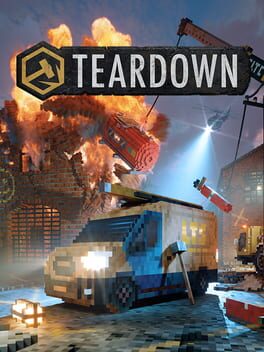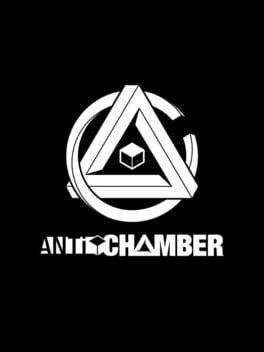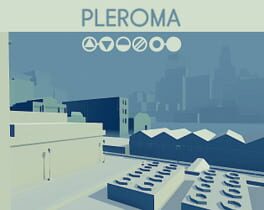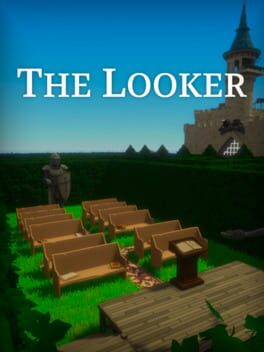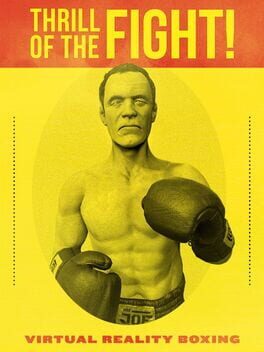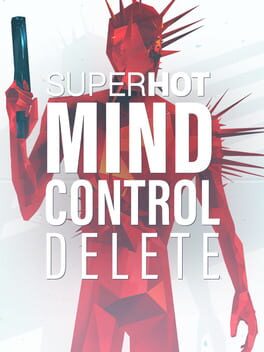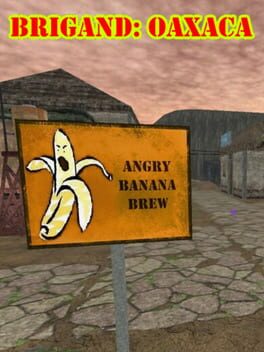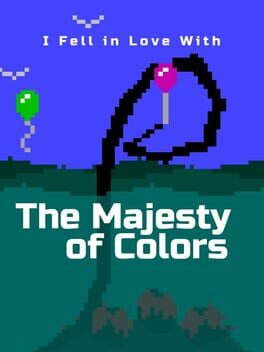AstrinSchmidt
2020
The campaign is honestly pretty frustrating. Just creating a route often takes upwards of half an hour, and then you have to spend at least another half hour continuously testing it and making minor adjustments to it so that you can complete the mission fast enough to get the highest ranking. Sometimes, getting the max score involves doing the driving, jumping and shooting perfectly during the action phase, so you might just have to try it ten times over to succeed, and God forbid you realise that your route is fundamentally flawed and you have to start all over!
All in all, the sandbox destruction is boring because the physics aren't perfect (it's possible to turn on accurate physics, but that tanks the framerate) and because there are no objectives or obstacles (I don't understand the point of sandbox games). The campaign, which you have to play to unlock everything for the sandbox mode, is repetitive and plagued by frustrating design, as highlighted above. I didn't enjoy the game, and never bothered finishing the campaign. I might try it again, especially that there's apparently a part 2 out (not that I ever finished part 1).
All in all, the sandbox destruction is boring because the physics aren't perfect (it's possible to turn on accurate physics, but that tanks the framerate) and because there are no objectives or obstacles (I don't understand the point of sandbox games). The campaign, which you have to play to unlock everything for the sandbox mode, is repetitive and plagued by frustrating design, as highlighted above. I didn't enjoy the game, and never bothered finishing the campaign. I might try it again, especially that there's apparently a part 2 out (not that I ever finished part 1).
2013
2019
Boring gameplay broken up by much more boring cutscenes... I guess I just don't get it. I've beaten the mission where you have to steal the thing from the enemy camp, and the game has really not gripped me. I am dreading the idea of doing more stranding just to see if there is anything to the story.
2022
Not much to say about this one... The graphics are great, most of the main bosses are fun, the open world is a massive chore and will waste dozens of hours on your first playthrough. This could have been the best, or second-best, Souls game had they not decided to pad it out with the copy-pasted open world "content." As is, it's all right.
2020
The game mostly revolves around walking across large, sparsely-populated low-poly landscapes. The player is given little to no direction, and none of the NPCs are terribly helpful, mostly delivering rather vague and vaguely poetic dialogue. The main meat of the game involves finding phrases written on walls in hidden places around the maps based on clues — a task which clearly requires some familiarity with the game's locales. I did not have the patience to complete this rather daunting and utterly uninteresting task, so I never found all of the connections between the maps, and hence, all of the phrased required to progress.
2022
The creator obviously understood what made The Witness a success, as both the puzzles and the audio recordings demonstrate the design principles behind The Witness, except Subcreation Studio put a funny spin on most of them. The game never really gets difficult like The Witness does, though there is one noteworthy puzzle near the end.
Which brings me to my next point: A lot of people will say, "This is a must-play for anyone who has played The Witness", and while I do agree, I would also add that you should play The Witness before playing this game, as it clearly expects you to understand the things which The Witness teaches you coming into the game, both in order to solve the puzzles, and (more importantly) to understand the humour. I could be wrong, of course, but as someone who has beaten The Witness, I feel that my experience with The Looker would have been considerably lessened had I not had the full experience of beating the original game coming into this one.
Overall, this game captures the pretty graphics of The Witness, and even manages to replicate a bit of the puzzle-solving brilliance of The Witness whilst poking fun at the whole thing. Would recommend.
Which brings me to my next point: A lot of people will say, "This is a must-play for anyone who has played The Witness", and while I do agree, I would also add that you should play The Witness before playing this game, as it clearly expects you to understand the things which The Witness teaches you coming into the game, both in order to solve the puzzles, and (more importantly) to understand the humour. I could be wrong, of course, but as someone who has beaten The Witness, I feel that my experience with The Looker would have been considerably lessened had I not had the full experience of beating the original game coming into this one.
Overall, this game captures the pretty graphics of The Witness, and even manages to replicate a bit of the puzzle-solving brilliance of The Witness whilst poking fun at the whole thing. Would recommend.
2009
A solid Souls game, but it's definitely missing a lot of what made the next entry in the series so iconic -- the story is fairly simple (and the game has lore dumps to make sure you understand everything), the bosses are mostly complete jokes, the levels are not interconnected, and are generally simpler than Dark Souls' levels (still way better than DSII SotFS). The poison swamp is the worst that FromSoft have ever made, to my knowledge (haven't played Elden Ring, though).
Overall, it's a good game, but it is nothing special. We should be thankful that the series was able to evolve past this title.
Overall, it's a good game, but it is nothing special. We should be thankful that the series was able to evolve past this title.
2019
I loved my first five hours with the game -- the novelty of discovering an entire solar system, flying around with intuitive controls which remind me of what it feels like to fly in dreams, etc. However, the game soon started to drag on -- I was basically wandering aimlessly, filling out a checklist and looking for audio logs (bits of text on the wall) which slowly filled me in on a story I really didn't care for.
This went on for around ten hours, with me feeling like I was just filling out a checklist for no reason, until I suddenly started accessing all the "endgame" areas in quick succession in the last five hours, and it suddenly felt like I was making strides towards understanding how to finish the game. Thus, I went from making little to no progress within the first 15 hours, to suddenly beating the game. In retrospect, I feel like I could have beaten it in 10 hours if I had more of an idea of where to go to look for actually important information, and I wish there was something the game would have done to help me trim down the boring bit in the middle.
The ending is a definite highlight of the experience, and is probably why this game is so overwhelmingly positive. I don't want to sound cynical, but I think everyone knows that a good ending can overshadow a boring slog in the middle part of a story, in one's memories. I just wish this game didn't force you to do the same thing over and over so much, and maybe trimmed the fat with how much unnecessary information you end up "discovering".
Overall, it's certainly a good game, but it suffers from glaring issues with its pacing and tedious gameplay loop. That's all I can really say.
This went on for around ten hours, with me feeling like I was just filling out a checklist for no reason, until I suddenly started accessing all the "endgame" areas in quick succession in the last five hours, and it suddenly felt like I was making strides towards understanding how to finish the game. Thus, I went from making little to no progress within the first 15 hours, to suddenly beating the game. In retrospect, I feel like I could have beaten it in 10 hours if I had more of an idea of where to go to look for actually important information, and I wish there was something the game would have done to help me trim down the boring bit in the middle.
The ending is a definite highlight of the experience, and is probably why this game is so overwhelmingly positive. I don't want to sound cynical, but I think everyone knows that a good ending can overshadow a boring slog in the middle part of a story, in one's memories. I just wish this game didn't force you to do the same thing over and over so much, and maybe trimmed the fat with how much unnecessary information you end up "discovering".
Overall, it's certainly a good game, but it suffers from glaring issues with its pacing and tedious gameplay loop. That's all I can really say.
2019
To address the elephant in the room: the presentation on display is simply impeccable. Brutalist architecture, lots of extremely well-rendered destructible environments, fancy ray-tracing effects, beautiful colours and lighting with the semi-official HDR patch (highly recommended); the cutscenes are very well directed, featuring some excellently surreal scenes, and the use of colour never fails to be striking. Paying this game for the first time four years after release, it is still an absolute visual treat.
The gameplay is quite engaging, giving the player a small but varied set of tools to use against groups of enemies in the aforementioned destructible environments. It never bored me in my playthrough of the main game + the two add-ons, and the only real complaint I have on this front is that it has a bit of a backwards difficulty curve where the first boss was the hardest fight in the game simply because Jesse barely had any abilities — the shield and the ability to glide are the last abilities you get, and both serve to greatly increase your defensive capabilities and manoeuvrability — the player should have got access to these much earlier IMO.
The worldbuilding is taking clear inspiration from SCP, but I did not mind that at all — Remedy have done the legwork of establishing their own fictional world and intertwining the FBC into it. It is just about as entertaining to read the plethora of documents available in the game as it is to read the SCP wiki.
The main plot is where the game falters in my opinion. It starts off with a strong premise, but is then bogged down with a lot of expository dialogue and meandering around the facility without really moving the plot forward... and just as the rising action really starts and you are heading into the climax, it suddenly ends.The DLCs do not help much, as one is a somewhat brief but interesting look into the potential future of Jesse as a character after the events of the game, and the other is essentially a teaser for Alan Wake II. The main story just suddenly deflates and will possibly be properly resolved in Control II.
I also wish to give a special mention to the soundscape of the game — the combat music provides a steady beat without being grating, and there are some delightfully eerie ambient tracks accompanying the brutalist architecture as you explore the Oldest House. It was entirely inoffensive at its worst, and effective at building an oppressive atmosphere at its best.
Overall, it's hard for me to find reasons not to recommend the game — great tactile response providing satisfying gameplay, enough build/tactical variety to make you consider your upgrades, lots of eye candy, intriguing, if ultimately disappointing main plot, I'd say everyone should give Control a shot. One thing I can say for certain is that itnis an incredibly vast improvement on Alan Wake, and it makes me curious about Quantum Break and how that might compare quality-wise... that, and Alan Wake II. My hopes for Alan Wake II are through the roof after playing this one.
The gameplay is quite engaging, giving the player a small but varied set of tools to use against groups of enemies in the aforementioned destructible environments. It never bored me in my playthrough of the main game + the two add-ons, and the only real complaint I have on this front is that it has a bit of a backwards difficulty curve where the first boss was the hardest fight in the game simply because Jesse barely had any abilities — the shield and the ability to glide are the last abilities you get, and both serve to greatly increase your defensive capabilities and manoeuvrability — the player should have got access to these much earlier IMO.
The worldbuilding is taking clear inspiration from SCP, but I did not mind that at all — Remedy have done the legwork of establishing their own fictional world and intertwining the FBC into it. It is just about as entertaining to read the plethora of documents available in the game as it is to read the SCP wiki.
The main plot is where the game falters in my opinion. It starts off with a strong premise, but is then bogged down with a lot of expository dialogue and meandering around the facility without really moving the plot forward... and just as the rising action really starts and you are heading into the climax, it suddenly ends.The DLCs do not help much, as one is a somewhat brief but interesting look into the potential future of Jesse as a character after the events of the game, and the other is essentially a teaser for Alan Wake II. The main story just suddenly deflates and will possibly be properly resolved in Control II.
I also wish to give a special mention to the soundscape of the game — the combat music provides a steady beat without being grating, and there are some delightfully eerie ambient tracks accompanying the brutalist architecture as you explore the Oldest House. It was entirely inoffensive at its worst, and effective at building an oppressive atmosphere at its best.
Overall, it's hard for me to find reasons not to recommend the game — great tactile response providing satisfying gameplay, enough build/tactical variety to make you consider your upgrades, lots of eye candy, intriguing, if ultimately disappointing main plot, I'd say everyone should give Control a shot. One thing I can say for certain is that itnis an incredibly vast improvement on Alan Wake, and it makes me curious about Quantum Break and how that might compare quality-wise... that, and Alan Wake II. My hopes for Alan Wake II are through the roof after playing this one.
After 23 hours of running around confusingly-designed environments stabbing tons of enemies to death with a washing pole, I can't handle this anymore. This is basically the King's Field III of the Souls series (rather fittingly, it's also the third Souls game) — bloated level design, lore which largely disregards subtlety, and a slower, less enjoyable core gameplay experience (fortunately, the frame rate is not garbage this time around). Overall, this game shows that FromSoft lost their way with the series, focusing on 'epic lore' and 'big bosses' instead of atmosphere and subtle world building, but at least Dark Souls III doesn't feel so sluggish to play. Would not recommend.
Update: I beat the game start-to-finish in preparation for Elden Ring. It doesn't really get better later on. It's the easiest, and crappiest Souls game. Would not recommend.
Update: I beat the game start-to-finish in preparation for Elden Ring. It doesn't really get better later on. It's the easiest, and crappiest Souls game. Would not recommend.
Pretty much the polar opposite of the first game in a few ways. This game is pretty much entirely filler — you'll be playing through the same stages over and over just to reach a disappointing end, treated to a 'story' that hardly even begun. This game could be squashed down to be the same length as the first SUPERHOT, if you just cut out all of the repeating content required to get to the ending.
Overall, it's just disappointing. This could easily pass of as an expansion pack for the first game, with some new levels and slightly fancier graphics. The gameplay is somewhat more varied this time, though I feel that the format of the game really brings it down (imagine Hotline Miami except you can tank four shots before dying, but once you die, you have to start the entire 'scene' over. It's just a bad fit).
Overall, the game feels bloated and pointless. It really is just MORE SUPERHOT.
Overall, it's just disappointing. This could easily pass of as an expansion pack for the first game, with some new levels and slightly fancier graphics. The gameplay is somewhat more varied this time, though I feel that the format of the game really brings it down (imagine Hotline Miami except you can tank four shots before dying, but once you die, you have to start the entire 'scene' over. It's just a bad fit).
Overall, the game feels bloated and pointless. It really is just MORE SUPERHOT.
2017
After 27 hours, I have just beaten the main campaign, and I feel like I've barely scratched the surface of what one can do in this game. Stats like Chemistry, Hardware and Medicine could potentially be useful, but I wouldn't know, because I never levelled them. This game allows for a lot of specialisation, and there are many ways to alter the game's world and story through your actions. This game is pretty much the ultimate janky RPG, and I would thoroughly recommend it to anyone who loved the original Deus Ex, and is okay with the idea of not having straight-up stealth level design in a Deus Ex spiritual successor (it bugged me for a while, but Brigand manages to work well regardless).
(Copied from Steam)
(Copied from Steam)
2012
